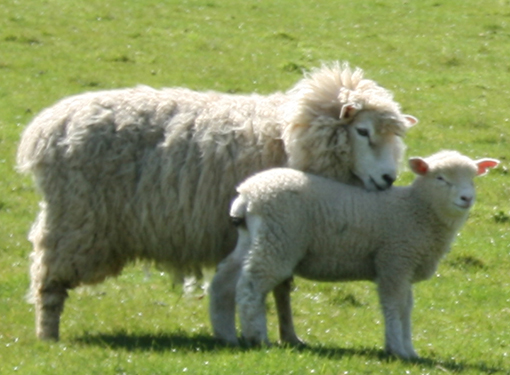
Sheep placenta is similar in its role to that of human placenta and placenta and is important for the nourishment of the baby. It contains concentrated nutrients including amino acids, collagen, hyaluronic acid, nucleic acid, vitamins and a range of minerals. These nutrients have important roles in the body for enhancing energy levels, maintaining the health of the intestine and stomach, resisting allergies, protecting facial beauty and keeping the body in good shape.
The health benefits of sheep placenta come from the combination of its rich content of bioactive components with its natural content of stem cells. Stem cells are cells that are produced by living organisms (human, animal and plant) to be available for replacing damaged cells in the body. Embryonic stem cells which are present in placentas are able to differentiate (take the form of) the damaged cells even though these may be blood cells, skin cells, internal organ cells etc. Because of this valuable property stem cell therapies are now in regular use for a range of medical and cosmetic treatments. In particular the cosmetic beauty industry makes good use of stem cell therapy for rejuvenation of facial tissue, anti-wrinkle treatment, removal and healing of scar tissue etc.
Most of the research into placental stem cell therapy has been conducted with human placenta stem cells and the references below are just two of the many examples of this work. However there are claims that animal placenta, particularly that from sheep, is equally effective in the human body and is preferable because the animals do not suffer the wide range of diseases that humans are subjected to. Using sheep placenta stem cells also avoids ethnical issues.
Some of the benefits from use of placenta are:
New Zealand, with its plentiful rainfall and abundant sunshine hours is an excellent environment for rich grass growth. Countries where sheep farming is limited by the availability of plentiful, quality grass are keen to buy sheep placenta from New Zealand because of its reliability for supplying a high quality placenta product. While sheep placenta is difficult to obtain in Japan , Aotea Pacific has been working in New Zealand for more than 20 years and, through its network there, has succeeded in obtaining reliable supplies of high quality raw placenta and processing this through to commercial products.
For some time now placenta extracted from sheep has been attracting attention, particularly with respect to its benefits for beauty treatment. It is being used in the beauty industry in countries such as Europe, America, and Canada. In China, where sheep placenta is referred to as “sheep’s fetal” there is a long history of its use.
Historically, humans have had a long relationship with sheep. The domestication of sheep is said to have come from ancient Mesopotamia around 7000 to 6000 BC. People farmed sheep, protected them from wild animals such as wolves, and benefited from their wool, meat and milk all these years ago. Sheep are also deeply involved in the religions of the Western world, such as Islam, Christianity and even in Judaism where sheep are highly regarded. The body weight (45 to 100kg) of a sheep and the number of births (1 to 2) are also said to be near to those of humans. Currently, it is estimated that there are about 1 billion sheep in the world (about 40 million of these in New Zealand) where they provide food, clothing, and products for health.